News
Future Market Insights forecasts growth in tortilla market
28 Aug 2018According to an analysis by the company, the global tortilla market is projected to be valued at $12,324.4m by 2028 end, expanding at a CAGR of 3.7% during the forecast period 2018-2028.

The consumption of tortillas has increased rather significantly over the past decade, notes Future Market Insights. According to an analysis by the company, the global tortilla market is projected to be valued at $12,324.4m by 2028 end, expanding at a CAGR of 3.7% during the forecast period 2018-2028.
Despite an extremely slow moving annual growth rate, increased tortilla consumption is predicted in the coming years—mostly supported by population growth, especially among Hispanics, as well as a continuation in the trend of consumer tortilla consumption preferences, the company says.Tortillas have successfully positioned themselves in the Latin American market. With a revenue share of +48% in 2017, Latin America clearly dominated the global tortilla market, in terms of value sales, substantially driven by the rapidly growing Hispanic population in the United States. In countries like Mexico, more than 94% of the tortillas are processed or produced using corn as their main source. Flour tortillas have a fairly high value share in the global tortillas market, compared to other variants such as tortilla chips, taco shells, tostadas, and corn tortillas. However, tortilla chips are expected to witness significant consumption in the coming years.Research also suggests that, due to increasing demand for Mexican cuisine such as tortillas, nachos, enchiladas, tacos, and tamales, especially in North America and Latin America, tortillas, in the on-the-go snacks format, have been gaining traction. Busy lifestyles, deteriorating health conditions, and increasingly urban working population are some factors contributing to the consumption increase of tortillas, as per convenience. Moreover, an in-depth consumer sentiment analysis also indicates that more than 40% of consumers buy tortilla products on a weekly basis and +50% consumers buy from modern trade stores like hypermarkets and supermarkets, owing to easy availability of the product at reasonable prices. Tortilla flour-based products, being one of the main Mexican foods, is gaining traction among its target customers throughout the foodservice industry.The global tortilla market has witnessed a surge in the launch of new products containing innovative flavours over the last couple of years, notes the researcher. Moreover, organic or gluten-free new products are being increasingly adopted in the Americas, primarily attributable to rising demand for the product, with added health benefits. The launch of these new flavoured products is expected to have a positive impact on the market, thereby fuelling the growth of the global tortilla market during the forecast period. Moreover, significant growth in organised retailing in the form of hypermarket and specialty markets, which are more likely to make savoury snacks popular among the consumers, will significantly drive the adoption of tortillas in the coming years.In new food formulations, Future Market Insights notes, key food manufacturers including Cargill and AB Mauri are leveraging the significant growth in the consumption of tortillas and have come up with new features added to tortillas. Cargill has developed a number of whole grain, low-fat tortilla prototypes in an effort to capture a slice of the growing U.S. market for healthy bread alternatives. With its new patent technology, AB Mauri has developed reduced-fat tortillas, paving the way for manufacturers to attract a growing base of health conscious consumers. The company’s new patented technology enables manufacturers to develop reduced fat, reduced sodium, wheat-based tortillas. Already widely adopted in the American market, AB Mauri has been strategizing on implementing the same patented technology in the European markets as well.Moreover, FDA approvals for folic acid fortification of corn masa flour, allowing manufacturers to add up to 0.7 milligram of folic acid per pound of corn masa flour, has opened up new opportunities for manufactures to explore new food formulations. Bunge offers corn masa flours and a wide variety of shortenings to help create products that meet all consumer demands, the researcher says.However, lack of stringent regulations and less emphasis on clean labelling, particularly in terms of safety and efficacy of organic products, could impact the consumer outlook, Future Market Insights believes, thereby affecting the growth of the tortilla market. Since, the production of tortillas is extremely low in other parts of the world, this would also affect the value sales of tortillas, the company concludes.Related news

UpSnack Brands acquires Pipcorn Heirloom Snacks and Spudsy
3 Jan 2025
Startup UpSnack expands with acquisitions amid hopes to make a mark in the better-for-you space with a diverse selection of upcycled ingredients.
Read more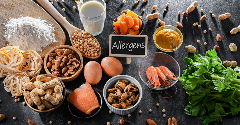
EU calls to harmonise allergen labelling increase
1 Jan 2025
Allergy awareness efforts focus on implementing a European reference laboratory and collaboration to standardise labels and support allergen identification.
Read more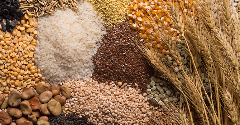
Is it time for a global definition of whole grain?
30 Dec 2024
Amid a lack of harmonisation, the European Food Information Council (EUFIC) is calling for a global definition of the term whole grain to end consumer confusion.
Read more
Coca-Cola waters down environmental targets on packaging, sustainable sourcing
24 Dec 2024
The Coca-Cola Company has changed its targets relating to water, packaging, climate, and agriculture, drawing fire from campaigners.
Read more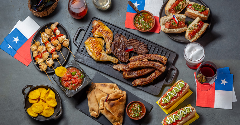
Chile's food labelling laws produce healthy results
23 Dec 2024
Chile’s warning labelling and marketing rules for unhealthy foods led to “significant decreases” in purchases of food and drinks with high levels of sugar, salt and fat, according to a study published in the journal PLOS Medicine.
Read more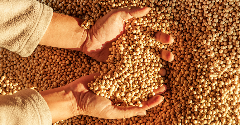
How US soy exports shape Southeast Asian food
19 Dec 2024
As Southeast Asia and the US mark 20 years of trade, trends in soy, especially plant-based preferences, signal increasing demand for high-quality protein sources.
Read more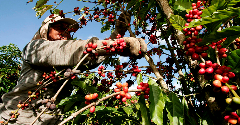
Coffee smallholders more sustainable than large-scale producers: Fairtrade
18 Dec 2024
Smallholder coffee plantations in Latin America are more climate-friendly than large-scale operations, according to an environment-focused study by Fairtrade Foundation.
Read more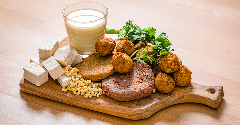
Europe’s new strategies pave the way for alternative protein growth
12 Dec 2024
European countries such as Lithuania and the Netherlands are adopting strategic approaches to accelerate the development of alternative proteins, balancing innovation with food safety to drive sustainable food systems.
Read more
Brazil looks to expand agricultural export opportunities
4 Dec 2024
Agricultural trade agreements could contribute to sustainable food production in Brazil, according to politicians and key stakeholders from the Brazilian agricultural industry.
Read more
Concerns grow over EU-Mercosur deal
28 Nov 2024
The European Consumer Organisation, BEUC, has warned that the EU-Mercosur trade deal is likely to fail both consumers and farmers on sustainability goals.
Read more